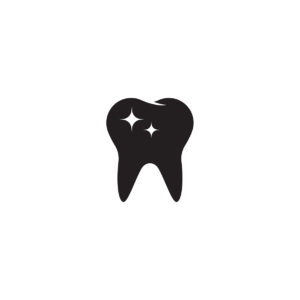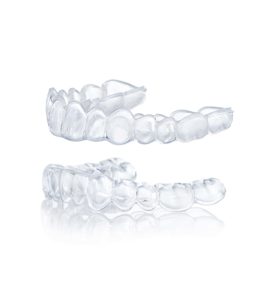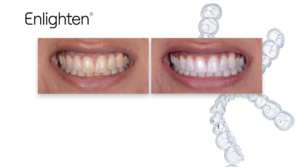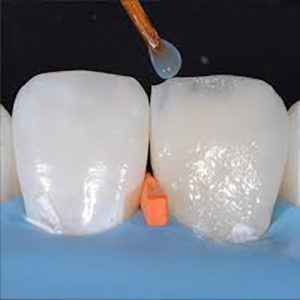What is Bruxism?
An insight into what bruxism means, what causes it and how it can be treated.
Bruxism is one of those terms that is thrown around from time to time (usually by a dental professional) and you’re never quite sure what on earth it means. Well, you needn’t wonder anymore. We’re going to cover everything you need to know about Bruxism in this blog.
Let’s start with what bruxism means and who it affects.

Bruxism is a condition that is said to affect around 8-10% of the UK population. It’s more commonly known as the grinding of teeth. And when combined with the clenching of the jaw, it can cause issues such as tooth wear and breakage, headaches and even disorders of the jaw.
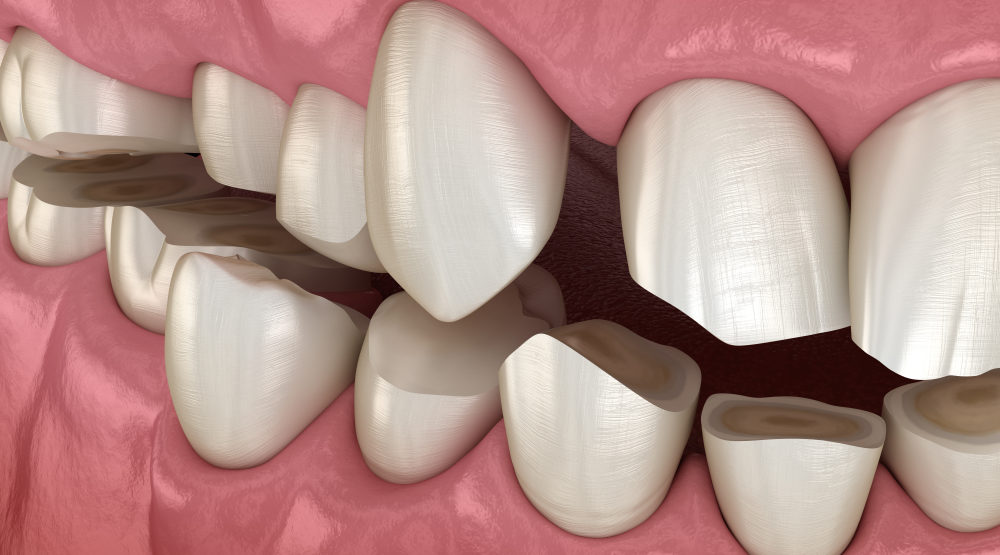
How do I know if I am a Bruxist?
There’s a few ways you can tell.
Other than the symptoms we mentioned earlier, here are a few more symptoms to look out for:
-
- Facial pain
- Earache
- Pain, clicking and stiffness in the jaw joint
- Disrupted sleep
- Broken teeth and fillings
- Painful tongue
Over 10 million adults in the UK are affected by bruxism and around a third of them aren’t even aware that they have it.
What causes Bruxism?
Bruxism can be attributed to many factors, both medical and lifestyle; but there are certain habits and conditions that have been found to contribute more significantly to bruxism.
-
Sleep disorders 💤
Sleep disorders are the most common cause of bruxism. This is mostly because sleep disorders cause moments of wakefulness during sleep and then after this grinding and clenching can occur.
-
Stress 😟
Almost 70% of bruxism is reported to happen as a result of stress or anxiety. Studies into this field found strong links between bruxism and work-related stress.
-
Lifestyle
Certain lifestyle choices have been shown to be linked with bruxism. People who smoke, consume alcohol and have more than six cups of caffeine a day are reported to be more likely to suffer from bruxism.
Is there a cure for Bruxism?
As of yet, there is no known cure for bruxism. However, treatments for bruxism are available to help manage the condition and provide relief from symptoms.
The most common forms of treatment are:
-
Occlusal splints
Occlusal splints are more commonly known as night guards. They are the most effective form of treatment for bruxism. Designed to prevent inadvertent tooth movement, occlusal splints reduce grinding noises and protect teeth from premature wear.
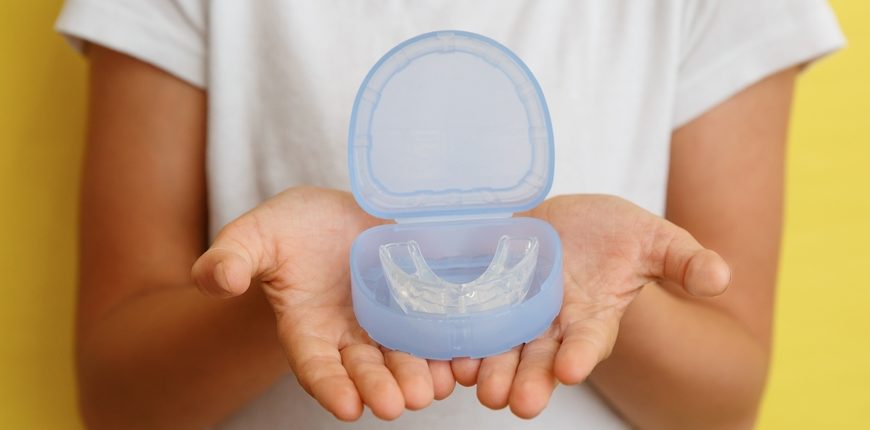
-
Botox
You’ll be familiar with Botox being used to remove wrinkles or lip plumping but recent studies have shown that the muscle-relaxing properties associated with Botox can help bruxism. A small amount is injected into the muscles responsible for moving your jaw. This reduces clenching and helps with any other associated symptoms of bruxism such as headaches. And results from this treatment can last anywhere between 3 to 6 months.
-
Mandibular advancement devices (MADs)
Mandibular advancement devices are usually used to treat sleep apnoea or manage snoring but studies have shown its effectiveness towards controlling bruxism as well. They’re similar to occlusal splints in the sense that they are also plastic guards.
-
Behavioural approaches 🧘
Hypnosis, meditation, muscle relaxants and stress management techniques have also been prescribed as options for managing bruxism. However, studies do show that mouth guards are still the most effective form of treatment.

If you’re reading this and are concerned that you may be suffering from bruxism, make an appointment with your dentist as soon as possible. Your dentist will be able to assess your teeth and advise you on your treatment options.
Want to read more on all things teeth? Then click here.
› DIG DEEPER ‹

Learn more about the Enlighten Teeth Whitening System here
And to find an Enlighten whitening expert near you, hit the button below.

Or if it’s mini smile makeovers you want to dig deeper into, then give it a click right here.




